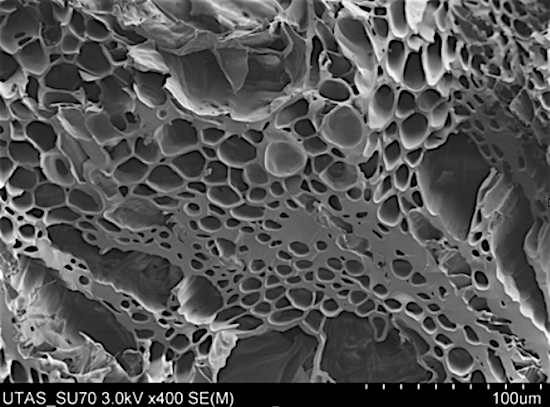Biochar
 Biochar is simply a specialized form of charcoal that is suitable for use as a soil amendment (typically combined with compost) to increase agricultural crop yields and conserve nutrients and water. Biochar is able to fulfill these functions because of its unique physical structure, with literally millions of tiny pores that hold the nutrients and water for the plants’ roots to access and enjoy. In many ways it’s akin to a coral reef in the ocean, acting as a natural attractant, sanctuary, and incubator by creating infrastructure for billions of organisms to thrive.
Biochar is simply a specialized form of charcoal that is suitable for use as a soil amendment (typically combined with compost) to increase agricultural crop yields and conserve nutrients and water. Biochar is able to fulfill these functions because of its unique physical structure, with literally millions of tiny pores that hold the nutrients and water for the plants’ roots to access and enjoy. In many ways it’s akin to a coral reef in the ocean, acting as a natural attractant, sanctuary, and incubator by creating infrastructure for billions of organisms to thrive.
Biochar is made by heating woody waste materials (of many different types) in the absence of oxygen, in a process called “pyrolysis.” The wood is not burned, but at temperatures of about 450 to 700 degrees C gasses are produced that feed the pyrolysis process, leaving behind essentially pure carbon with its millions of microscopic pores. This is “biochar.”
The biochar is then placed into the soil by farmers….in their fields of crops, in their orchards, in their vineyards. They “plow it in” or “till it in” just like they normally do with regular compost or with chemical fertilizers. Field tests have shown that the worse the soil’s characteristics are when the biochar is added to it, the more positive the impact on crop yields.